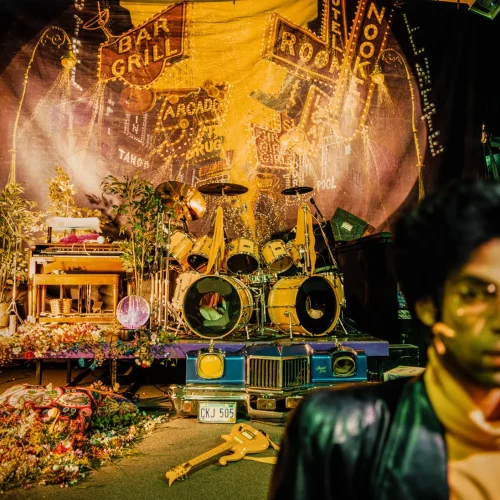It’s 1986 and Prince’s career is in full-afterburner mode.
“Purple Rain,” “When Doves Cry,” and “Raspberry Beret” have already cemented his inclusion among the most successful – and talented – popular musicians of the second half of the 20th century.
Tepid off of two less-than-seismic releases, The Artist has decided to go rogue, disbanding his longtime compadres, The Revolution, and going solo for his forthcoming 1987 release, Sign O’ The Times.
Much like Prince, America is also treading in an unnerving state of flux. Prince, never a stranger to controversy, has decided to take direct aim at his homeland and most of its prevalent social issues.
The title track and lead single is, for lack of articulation, a damning admonishment of the same culture that afforded his fame and recognition.
Like a housed racehorse, blinders and all, Prince breaks out of the gate with a nod to the epidemic of the decade, claiming:
In France a skinny man died of a big disease with a little name
By chance his girlfriend came across a needle and soon she did the same
At home there are seventeen-year-old boys and their idea of fun
Is being in a gang called ‘The disciples’ high on crack
Totin’ a machine gun
One stanza. Two statements that should register on the Richter Scale.
Decades later, the A.I.D.S. and crack epidemics of lower-income America will be well documented. Prince will beat them all to the K.O. punch.
During the writing process of Sign O’ The Times, NASA’s infamous Challenger mission ended in an unprecedented disaster, live in front of a global audience. The shuttle exploded due to a slight malfunction. 7 souls lost, billions of American dollars spent for essentially a horrific fireworks display. Princes pounces, citing
Sister killed her baby ‘cause she couldn’t afford to feed it yet we’re sending people to the moon
In September my cousin tried reefer for the very first time, now he’s doing horse (heroin)
It’s June
Another stanza, another complete damnation of Prince’s nation. And we haven’t yet reached the first chorus, which will ultimately echo the sentiment of misdirected funding and (in Prince’s view) ego-driven space exploration. He lightens, perhaps only enough for the listener to peer through the armor, offering
It’s silly, no?
When a rocket ship explodes
And everybody still wants to flySome say a man ain’t happy truly
Until a man can truly die
Oh, why?
Rolling Stone will call Sign O’ The Times ‘arguably the best R&B album of the ‘80s,’ and later, prior to its induction into the Grammy Hall of Fame, ‘perhaps the best album of the 1980s.’
One thing is certain. Prince, for all his outfits, customized guitar aesthetics, and pomp, always had an ear to the shaky ground on which the foundation of his career rested.







